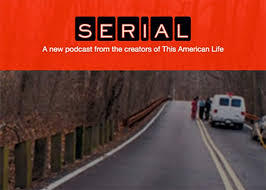Last Thursday’s workshop on “Avoiding Plagiarism” brought out a fantastic showing of professors, for one of our most attended workshops yet! Thank you to all those who were able to make it, for those of you who weren’t, here’s a little recap:
No professor wants to deal with plagiarism (the disappointment! The bureaucracy! The uncomfortable conversations with a student!), this workshop takes as its premise that it is possible for professors to take steps to prevent plagiarism before it occurs! In particular, here at WAC we believe that often plagiarism occurs because a student hasn’t fully understood what counts as plagiarism (and we saw during our workshop that there is a lot of gray area that even professors can disagree on!).
City Tech has a particularly notable policy on academic misconduct, that emphasizes the professor’s responsibility in informing students about plagiarism. It states:
“Students and all others who work with information, ideas, texts, images, music, inventions, and other intellectual property owe their audience and sources accuracy and honesty in using, crediting, and citing sources. As a community of intellectual and professional workers, the College recognizes its responsibility for providing instruction in information literacy and academic integrity, offering models of good practice, and responding vigilantly and appropriately to infractions of academic integrity.” – NYCCT statement on academic integrity (emphasis added)
With this responsibility in mind, the first part of the workshop included a number of activities and handouts that professors can use to assist them in raising awareness about plagiarism in their classrooms. Many of us have used these strategies in our own classes and have found them particularly helpful.
Crafting Assignments to Avoid Temptation to Plagarize
Student plagiarism can have many different causes. Another prominent one we’ve found- that can easily be targeted!- is a lack of confidence, or difficulty with time management. The pedagogical tool of scaffolding can be an invaluable resource for creating assignments that develop students’ confidence and encouraging time management skills. Scaffolding, as many of you know, emphasizes building towards larger projects, step by step. This graduated nature of scaffolded assignments helps students from feeling overwhelmed by a large term paper, and feeling tempted to go online and download a preexisting one.
In the workshop we examined how a scaffolded assignment schedule helps both develop students confidence and promotes working in increments rather than leaving everything for the night before.
In addition to scaffolded assignments, designing assignments with a unique or contemporary twist can help students develop an interest in the work, and also mitigates the temptation to hand in something they found online.
For example- one sociology professor has her students write an analysis of Marx’s notion of estranged labor, but asks students to argue whether or not Beyonce could be considered “alienated”. An English professor teaches The Crucible and has students create a podcast in the style of the extremely popular “Serial”.
Both Marx’s notion of “estranged labor” and The Crucible are certainly topics which students could find a wealth of prefabricated, rote essays to pilfer from on the internet, but these alternative assignments seek to engage students’ interests, and avoid the temptation to hand in a preexisting essay by shaking things up a bit. As an extra bonus for professors , these types of assignments can be more interesting to read and grade as students really can let their passions shine through!!
Professors in attendance were encouraged to think up some different and unique assignments they could design to get students thinking through the core concepts of their class. One electrical engineering professor designed an assignment where students would have to calculate the amount of electricity needed to power a Beyonce concert!
Do you have any unique assignments that have been particularly successful? We’d love to hear see in the comments below!
Of course, not all assignments have to be unique and scaffolded, we encourage professors to try out a variety of different tactics that might work best for their needs.
Be sure not to miss our next workshop:
- Effective Grading and Minimal Marking
- Thursday, November 19, 2015
- 1:00-2:15pm
- Room: Namm 1005
- Free lunch and coffee!
- Thursday, November 19, 2015
*If you would like to see the full workshop, slides are available for download here








